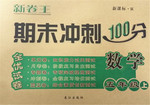题目内容
BEIJING, Nov. 25, 2005(Reuters)— China’s home-grown human bird flu vaccine① is at least a year away from hitting the market but tests on humans have been approved by the government, head of the research drug company said on Friday.
Development of the vaccine started last year after bird flu outbreaks in Thailand and Vietnam and animal trials have already been completed, said Yin Wei-dong, managing director of Sinovac Biotech.
“It is not a virus that is spreading from human to human,so we are very optimistic②,” Yin told Reuters in an interview.
The deadly H5N1 made its first known jump to humans in Hong Kong in 1997, killing six people. The virus appeared again in late 2003 and is known to have infected 130 people in several parts of Asia, killing 68 of them.
“It is not decided yet when the human trials will begin. We just got approval on November 22 by the State Food and Drug Administration,” Yin said.
Oregon, Nov. 26, 2005(AP)— The deadly strain of bird flu that appeared in Asia and has already spread to other parts of the world has not affected the Oregon poultry③ industry or consumers, according to Oregon State University researchers.
There are many strains of bird flu that do not usually infect humans. But one strain, called H5N1, has jumped from chickens to humans and is blamed for more than 60 deaths in Asia.
International disease control experts are worried about a worldwide outbreak of bird flu, raising concerns such as whether it is safe to eat poultry.
But Oregon State University researchers say there is no proof that the virus can jump to humans by eating cooked poultry products.
“Consumers needn’t be overly concerned about bird flu,” said Jim Hermes, OSU Extension Service poultry specialist. But he urged consumers to follow standard food safety practices in preparing poultry —including washing hands while preparing food, and proper cooking of poultry meat and eggs.
He noted that a 2003 outbreak of bird virus caused much damage to commercial poultry operations in California but did not get into Oregon because of industry safeguards.
Notes:
vaccine n. 疫苗
optimistic adj. 乐观的
poultry n. 家禽
Choose the best answers according to the above:
- 1.
Which of the following statements is NOT true according to the first news report?
- A.Human trials have already started but not yet successful.
- B.Bird flu killed 68 Asian people in its second outbreak.
- C.The bird flu virus is not one that spreads from human to human.
- D.The government has agreed to have the vaccine tried on humans.
- A.
- 2.
What does the first news report mainly talk about?
- A.The new outbreak of the bird flu.
- B.How the development of the bird flu vaccine is going on.
- C.How many people died of bird flu.
- D.What measures the government has taken to stop the spreading of bird flu.
- A.
- 3.
What does the underlined word “strains” probably mean?
- A.signs.
- B.symbols.
- C.kinds.
- D.diseases.
- A.
- 4.
What can we know from the second news report?
- A.Because of the safety guards, Oregon poultry industry didn’t suffer any loss in the 2003 outbreak of bird flu.
- B.People in Oregon are not concerned about bird flu.
- C.People will develop bird flu even if they eat well-cooked poultry products.
- D.H5N1 has caused more than 60 deaths worldwide.
- A.
1.细节理解题。从第一段可知,这种疫苗刚刚被批准在人体上做实验,但还没有开始具体实施。
2.主旨大意题。第一则新闻主要就是介绍禽流感疫苗开发研制工作的发展近况,其他选项太片面。
3.词义猜测题。从第二则新闻的第二段不难判断,该词意为“类型”。
4. 细节理解题。从第二则报道新闻的最后一段,我们了解到由于安全防护措施得当,该地区的家禽业没有遭受经济损失。

 课程达标测试卷闯关100分系列答案
课程达标测试卷闯关100分系列答案 新卷王期末冲刺100分系列答案
新卷王期末冲刺100分系列答案 全能闯关100分系列答案
全能闯关100分系列答案After a 15-year ban on the sale of fireworks in Beijing, Kang Guoliang, 51, was able to start his old trade again yesterday.
As a salesman in Xinhui store in Dongcheng District, he is happy about the increasing number of buying fireworks wrapped in red paper — a color standing for happiness and good luck.
“Fireworks are available for the first time in town for more than a decade,” Kang said happily.“People will buy them.”
The store has 300 boxes of fireworks piled up and is open 24 hours at the moment.Residents are buying the fireworks and firecrackers for the upcoming Spring Festival, which falls on February 18.
Citywide, 2,116 registered stores and retailers, 585 in the centre and 1,600 on the outskirts are trading fireworks in the Chinese capital.Sales of fireworks within the Fifth Ring Road started yesterday and will last until March 4, Xinhua reported.Among the stores, 117 stores are permitted to operate 24 hours.About 600,000 boxes of firecrackers worth more than 100 million yuan have been carried to registered stores.
The Chinese capital began a ban in 1993 to reduce fireworks-related deaths and fires during the holiday season.Last September the ban was removed in response to residents’ fondness for fireworks when celebrating Spring Festival.
According to new rules, Beijing residents are allowed to set off fireworks within the Fifth Ring Road all day on Lunar New Year’s Eve and Lunar New Year’s day, from 7 a.m.to midnight every day from February 19 to March 4.
“Spring Festival without fireworks is not Spring Festival,” said Sheng Hefei, who was buying fireworks in the store.“It was fun to light the firecrackers when I was little,” he said.“The sound and view of fireworks make a real holiday.” However, not all residents welcome the return of firecrackers because of injuries, pollution and noise.“My child is scared of the sudden sound of firecrackers, and it is annoying to hear it all night long,” complained Lu Jun, a local resident.
(China Daily02/11/2008)
1.The passage is likely to belong to a(n)__________?
|
A.description |
B.argument |
C.advertisement |
D.news report |
2.What’s the main idea of the passage?
|
A.Beijing fireworks sales start after a 15-year ban. |
|
B.People go to buy fireworks and firecrackers every where in Beijing. |
|
C.Beijing residents all welcome the return of firecrackers. |
|
D.Many stores began to sell fireworks and firecrackers. |
3.We can learn from the passage that ____________.
|
A.every Spring Festival falls on February 18 |
|
B.Beijing residents can set off fireworks everywhere . |
|
C.fireworks are allowed to be sold because people like them. |
|
D.from February 19 to March 4, Beijing residents can set off fireworks twenty four hours every day. |
4.What is the writer’s attitude towards the sales of fireworks in Beijing?
|
A.Negative |
B.Not mentioned |
C.Positive |
D.Satisfactory |
